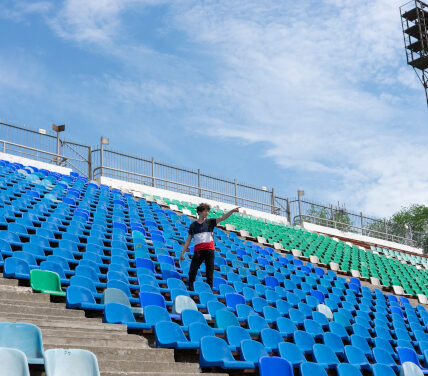In KwaZulu-Natal, rugby is as much about community as it is about sport. From schoolboys in Durban North to seasoned players in Pietermaritzburg, the game fosters something intangible yet deeply felt, camaraderie that stretches beyond the touchline. These aren’t just teammates. They’re brothers forged through mud, sweat, and late-night bus rides after away games.
Rugby, by its very nature, is not a solitary pursuit. It demands coordination, resilience, and trust. There’s no hiding on the pitch. Whether you’re a front-row prop or a wing waiting for that final pass, your actions depend on and shape the team around you. This dependency forms the bedrock of player bonds.
It starts with training. Early mornings spent on the field while the mist still clings to the grass create shared rituals. Jogging in formation, pushing through gruelling scrums, and enduring repeated drills might seem like monotonous preparation, but in reality, these sessions are where bonds quietly form. Shared struggle has a way of uniting people. When your lungs burn and your muscles ache, a silent understanding grows between you and the person beside you, we’re in this together.
Bus trips to away matches are another cornerstone of rugby team culture in KZN. Hours spent in cramped seats, music pulsing from portable speakers, conversations ranging from strategy to school gossip, create a mobile brotherhood. Players swap stories, share meals, and nap with heads tilted against the windowpane. It’s not all deep talk. Jokes fly. Teasing happens. But under it all, there’s a shared thread of loyalty.
Off the field, team socials play their part too. From braais after a hard-fought win to evenings spent watching game replays together, these gatherings cement the bond beyond competition. Coaches often encourage such activities, knowing that the strongest teams aren’t necessarily the ones with the biggest players, but those with the tightest connections.
What sets rugby apart from many other sports is the physical toll it takes, and how that heightens camaraderie. Players literally put their bodies on the line for each other. In a scrum, you’re shoulder to shoulder, trusting the guy next to you not to falter. During a tackle, you might take a hit so your teammate doesn’t have to. That level of mutual reliance doesn’t fade once the final whistle blows.
For many KZN players, these bonds carry into everyday life. Friendships formed on the rugby field often outlast playing careers. Former teammates become groomsmen at weddings, business partners, even lifelong confidants. It’s common to hear stories of players who haven’t shared a field in years meeting up as if no time had passed.
Rugby also bridges social divides. In South Africa, where community lines often follow historical and cultural patterns, sport can be a unifying force. On the rugby field, players from diverse backgrounds share not just space but purpose. In KZN especially, school and club teams reflect a rich mix of languages, cultures, and histories. And yet, when the whistle blows, those differences blur into something larger.
The role of the coach is also vital in nurturing team bonds. A good coach understands that building a team isn’t just about drills and match prep. It’s about creating an environment where players feel seen and valued. Many successful KZN coaches incorporate team-building exercises into their routines, everything from trust falls to informal team chats over coffee. It’s about reinforcing that no player stands alone.
 Rituals add another layer. Many KZN teams have their own pre-game chants or post-win songs. These aren’t random traditions, they’re carefully held moments that mark shared experience. Singing together after a tough match, even a loss, can turn defeat into solidarity.
Rituals add another layer. Many KZN teams have their own pre-game chants or post-win songs. These aren’t random traditions, they’re carefully held moments that mark shared experience. Singing together after a tough match, even a loss, can turn defeat into solidarity.
One of the most telling aspects of rugby team bonds is how players respond when one of their own is injured. It’s not uncommon to see an entire team rally around a sidelined player, visiting them in hospital, helping with rehab, or simply checking in. That sense of duty extends off the field into life challenges as well. Rugby brothers stand up for each other when times get tough.
Perhaps what makes rugby’s bond unique in KwaZulu-Natal is its history. From township clubs to elite private schools, the province’s rugby culture carries a legacy of both competition and unity. Older players often return to mentor younger teams, passing down not just skills but values. It’s a cycle of connection that stretches across generations.
In an increasingly digital world, where so much interaction happens behind screens, rugby offers something solid and real. It’s about sweat and mud, yes, but it’s also about trust, loyalty, and enduring friendship.
So the next time you watch a team take the field at Kings Park or a dusty school ground outside Durban, look beyond the jerseys. What you’re seeing isn’t just a lineup of players. It’s a web of bonds woven through hard tackles, shared losses, long bus rides, and quiet respect. It’s rugby. And in KwaZulu-Natal, rugby is family.




